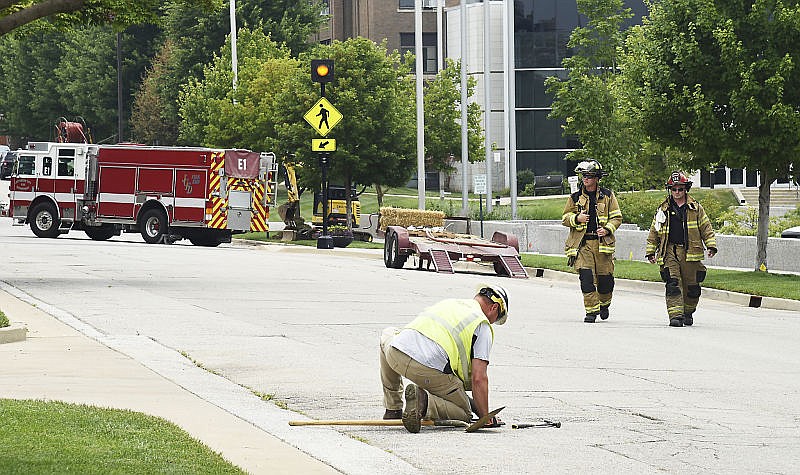COLUMBIA, Mo. - Officials at Ameren Missouri remind customers to take immediate action if they smell natural gas or suspect a leak.
"A customer should never smell natural gas in or around their home or business. Learning important safety tips about natural gas will keep you and your family safe," Pam Harrison, director of Gas Operations for Ameren Missouri, said. "If you suspect a gas leak, leave immediately and call us after you are out of the building. Our crews will respond immediately no matter what time of day, seven days a week, and there is absolutely no charge to the customer for a call-out if there is a legitimate concern about a gas leak."
Natural gas is odorless and colorless. Harrison said Ameren Missouri adds an odorant to create the distinctive "rotten egg" smell to make it easier to detect and helps protect the public to ensure safety.
Here are some more safety tips:
If you suspect a gas leak, evacuate the premises immediately, and take your pets, too. On your way out of the building, do not use light switches, cellphones, garage door openers or any electrical device that could generate a spark.
Smell gas? Leave fast. That distinctive "rotten egg" odor makes it easy to sniff out a gas leak. In addition, a hissing or roaring sound or an unusual area of dead vegetation, blowing dirt or bubbling water can all indicate a gas leak.
Once you are safe, call your utility supplier to report the suspected leak. to report possible leaks, Harrison said. "We urge our customers to play it safe and alert us if they suspect a problem."
Harrison also offered these tips to keep gas appliances operating safely:
Have a qualified heating contractor inspect your furnace annually. A properly tuned furnace saves energy and helps avoid costly repairs.
Check the flue to make sure it is clean and open. Any fuel that does not burn completely can create harmful levels of carbon monoxide. Carbon monoxide is a gas with no color, odor or taste. It can collect in your home if a fuel-burning appliance isn't working properly or venting as it should.
Keep forced-air furnace filters clean. Clean or replace them according to the manufacturer's recommendation.
Avoid using or storing these products near the furnace: paint stripper, fabric or water softener, bleach, adhesives, or salt for melting ice. The chlorine or fluorine in these items can lead to furnace corrosion.
Keep your heat registers and cold-air returns clean so the air can flow properly. Also, arrange your furniture and drapes so they don't block the air flow.
Have your gas fireplace routinely serviced by a professional to ensure proper working order.
In the event of a power outage, do not use natural gas stove burners or the oven to heat your home.

